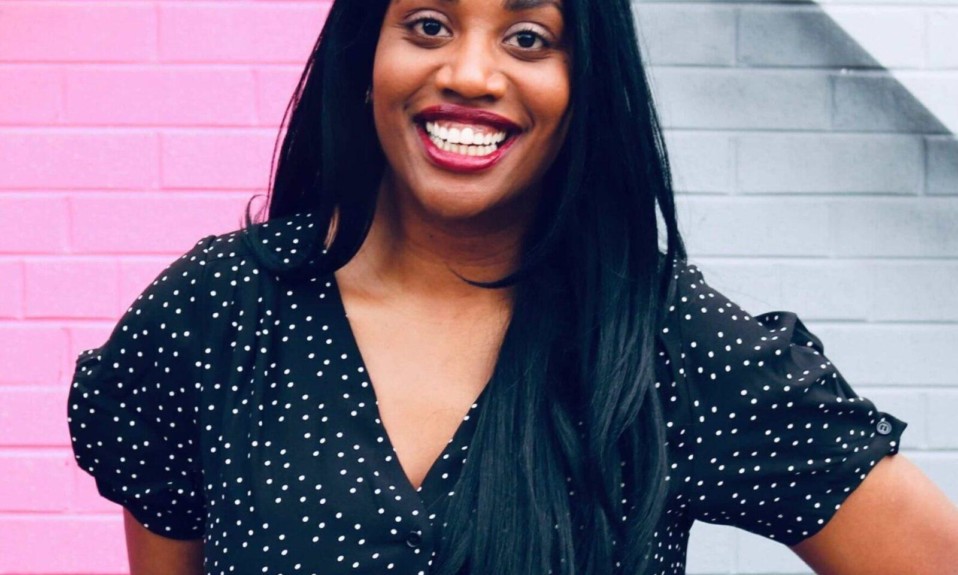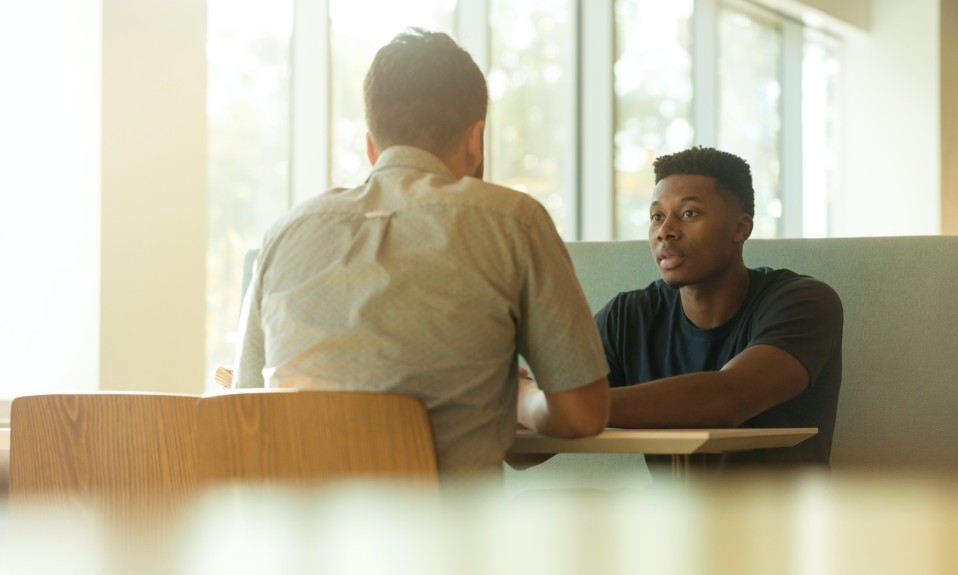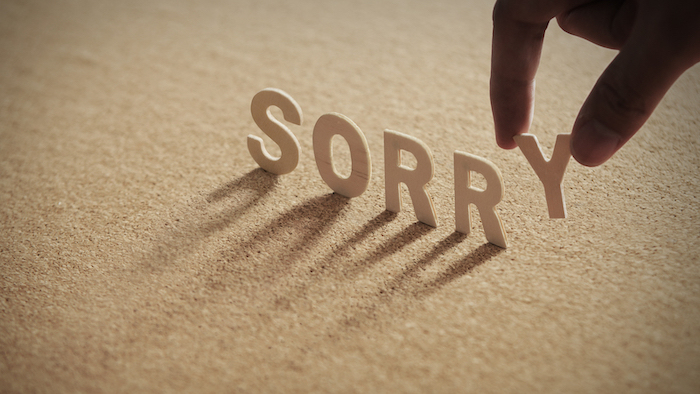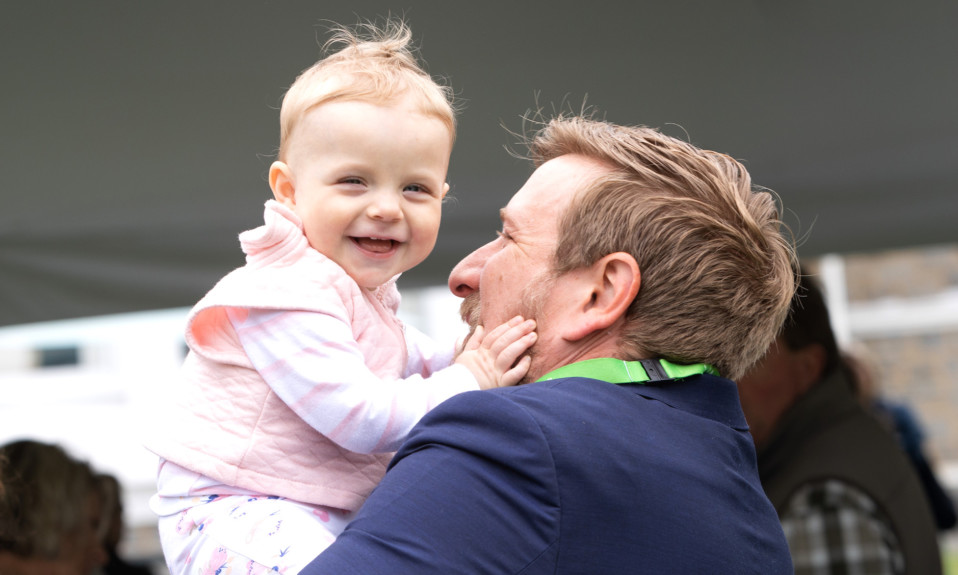After surviving her own harrowing addiction journey, Ariel “Air” Britt is developing into a leader in the recovery space, with a special focus on college students
By William Wagner
December 10, 2020“The Air Project” isn’t actually a project—not in the literal sense. We’re not talking about hanging a ceiling fan or installing a cooling system. The Air Project is a person: Ariel “Air” Britt, addiction survivor and recovery advocate.
She uses the term as her Instagram handle and as a button for her bio on the website for her podcast, Beauty in the Grit. There’s something perfect about it. Like anyone in recovery, Britt is a work in progress, a project that’s never quite finished.
“We’re always growing,” says Britt, 35. “We’re transforming, we’re learning, we’re messy, and we’re majestic. It’s the experience.”
I remember being on the phone with my mom when I was on the way to the White House and asking her, ‘Did you ever imagine this for my life?’ She said, ‘No, Ariel, this is beyond my wildest dreams.’”—Air Britt, senior director of SAFE Project’s SAFE Campuses initiative and host of the “Beauty in the Grit” podcast
The Air Project is best exemplified by Britt’s laugh, which originates from deep within and springs to the surface with boldness and joy and resiliency. Whether she’s recounting a moment of pain or triumph, her laugh keeps coming. It’s proof that while The Air Project remains under construction, it’s pretty damn sturdy.
These days, there’s a lot more triumph than pain in Britt’s life. In January of this year, she joined the Denver-based SAFE Project (Stop the Addiction Fatality Epidemic) as senior director for its SAFE Campuses initiative. The mission of SAFE Campuses is to provide recovery support to students in colleges across the nation, and it has proved to be an ideal outlet for Britt’s energy and creativity.
“This was an opportunity for me to step in and really revamp the programming they were offering,” says Britt, who worked for the recovery organization The Phoenix as program manager before signing on with the SAFE Project. “Within our campus initiative, one great thing we have is a leadership academy, where students from across the nation who are in recovery themselves or are passionate about recovery or are connected to that piece want to see something on their campus or make an existing program even better. We offer them support, whether that’s one-on-one mentorship, a policy change on campus or focusing on harm reduction. I’m just a purpose-driven person.”
Addiction, Disarray & Destruction
But it wasn’t always this way. Truth be told—and Britt never shies away from speaking truth—The Air Project was slow to take shape. She grew up in Michigan, but it may as well have been Mars. No matter what she did—studying, playing sports, hanging out with friends—she felt different from everyone else.
“I was just feeling [things] at a very high level,” Britt remembers. “That was hard for me. Even just the touch of grass irked me in a way. I’m sensitive, and I didn’t know how to handle that. I didn’t know at the time that it was just that my chemistry and biology and mind were different. I wanted to escape. I was overloaded with my feelings and other people’s feelings and how things were happening. It was too much. I wanted to numb out from the human experience.”
She did just that when she arrived at the University of Michigan as a freshman in 2003. Finally, everything seemed to sync up, courtesy of copious alcohol, weed, cocaine and whatever else was available. Says Britt, “I had a really good time doing that until it wasn’t fun anymore.” At that point, she dropped out of college and set off for New York City on an odyssey of destruction and, ultimately, redemption.
“New York City got me, ate me up,” she says. “I was a big fish in a small pond living in Michigan, and you go to New York and no one cares—you’re just like everyone else. It was very humbling, but exactly what I needed. I got sober and really invented myself in the recovery community there, which was awesome. I started doing the 12 steps.”
It is your birthright to find exactly what you need, exactly what you’re looking for. You weren’t born to go at this alone. You weren’t born to feel like you just need to numb out completely. There are friends. There’s a community. I am with you in the most loving way possible. …Just open your minds, open your hearts, and move toward it.”—Air Britt
Recovery & Rebuilding The Air Project
Yet The Air Project still was somewhat stalled. She was working as a nanny in New York while pushing through the 12 steps, and after about a year, the family sat her down and told her, “Okay, what are you doing? You’re better than this. You should do something more with your life.”
With that nudge, Britt decided to finish her B.A. in psychology at Michigan. Nevertheless, she was terrified to return, terrified of the triggers and ghosts of failures past that awaited her. This time, however, things were different. During her absence, a support community called the Collegiate Recovery Program, part of the Association of Recovery in Higher Education, had been launched at the University of Michigan.
It wound up being a game changer for her.
“I always say that 12-step recovery saved my life—because I surely would have died—but Collegiate Recovery gave me one,” says Britt, who returned to Michigan in 2013. “I had a space with other students who were in recovery. We would meet and hang out and study together and bond and just talk about how our brains were different than a lot of other students’ on campus.”
In the Collegiate Recovery Program, she found the most precious of gifts: a sense of purpose.
“Her presence was magnetic,” says Matt Statman, who helped to start the Collegiate Recovery Program at Michigan and currently serves as program manager. “She’s a natural organizer and leader. She planned a lot of events, and people rallied around her and came to those events. When she is passionate about something, she makes it happen. Her passion is contagious. She’s like a recovery carrier.”
Let the SAFE Times Roll…
After earning her B.A., Britt stayed at Michigan to complete her master’s degree in social work. From there, she was off to Kennesaw State University in Georgia, where she worked as program director for that school’s Collegiate Recovery Program. Next it was on to Denver to further develop her skills at The Phoenix and SAFE Campuses. And here we are.
“Every time I try to get away from school, it’s like, ‘Come on back.’ It’s so funny,” Britt says. “It feels like something related to education and young people sparks me. To be a student in recovery on a college campus—oh man, it’s so isolating. Too often, just to be a student on a campus can be isolating. So anything I can do to make it fun and enjoyable and make young people feel seen and heard, I’m all about it. That’s what I needed [as a college student]. That’s what we all crave. It just feels right.”
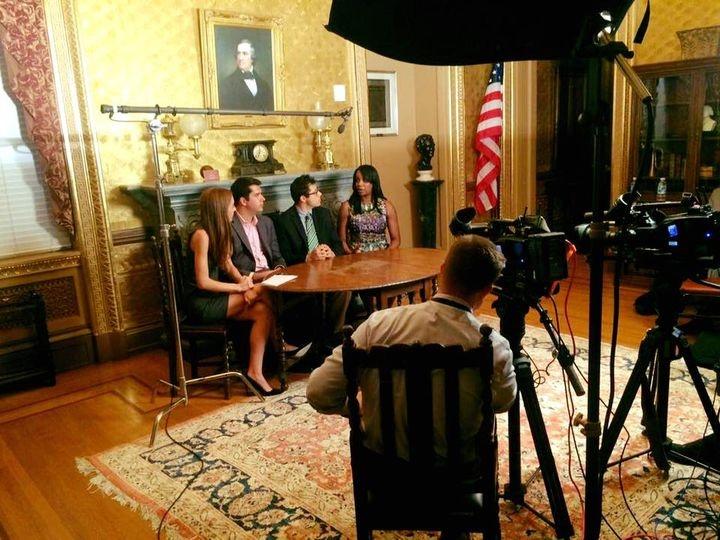
A True Beauty in the Grit
Now, as host of the podcast Beauty in the Grit, she has another platform for reaching out, although she didn’t see this experience coming either. She applied on a whim in 2019 for an incubator related to women of color by the audio production company House of Pod. Lo and behold, she was selected as the winner of the search and was awarded $5,000 toward her first season.
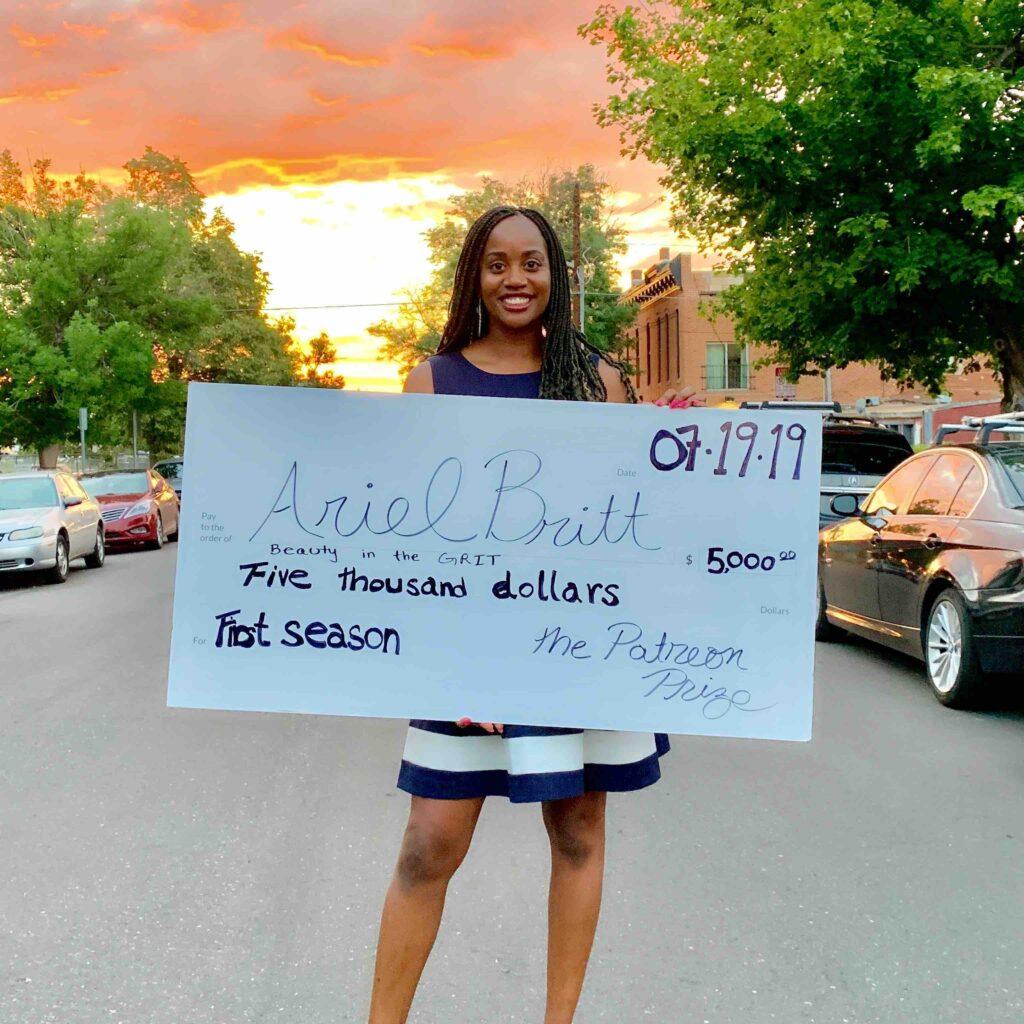
“For me, it’s a storytelling podcast to help people access hope,” Britt says of Beauty in the Grit, which concluded season one in September. “Depending on your tax bracket, your race or your social construct, hope is something that is not as accessible. I wanted to make it more accessible. I’ve been blessed to know a lot of amazing stories and also oftentimes have been the story. It’s something that really seemed to resonate with people.”
One such person is Nzinga Harrison, M.D., whose own addiction-oriented podcast, In Recovery, recently was named to Stitcher’s “Best of 2020” list. “We have a colleague in common,” Harrison says. “He dropped me a link to one of the episodes of her podcast. I listened to the first two minutes and was pouring tears, and I was like, ‘I have to get this woman on my show.’”
Following Britt’s appearance on In Recovery, Harrison was left with a clear feeling about her chances of developing into a leader in the recovery field. Says Harrison, “There’s no way it doesn’t happen. Her energy is too compelling; her gravitas is too big. Even if she didn’t try to become a force to be reckoned with in this space, it would happen.”
Harrison still marvels at Britt’s final remarks during that guest spot on her podcast. After closing her eyes and composing her thoughts, Britt reached through the ether and embraced the listeners:
“It is your birthright to find exactly what you need, exactly what you’re looking for. You weren’t born to go at this alone. You weren’t born to feel like you just need to numb out completely. There are friends. There’s a community. I am with you in the most loving way possible. And the thing of it is, it’s not just me. There are people who have walked this walk before you, who will walk the walk behind you, and who are walking it right beside you that you can’t even see, that you don’t even know. Just open your minds, open your hearts, and move toward it.”
Britt took another step in her own journey just last month, celebrating nine years of sobriety. It was a little different than her past celebrations of sobriety given the solitary nature of the COVID-19 pandemic—but she didn’t feel alone.
“The craziest thing about it was I had to buy my own nine-year balloon,” she says, another burst of laughter rising to the fore. “But I had people from all over remember and celebrate [virtually]. Life just looks different now. I’m not really looking so much outside for love. I’m developing it internally. You can’t take that away from me. It feels so good to love me.”
The Air Project, it seems, is coming along quite nicely.


